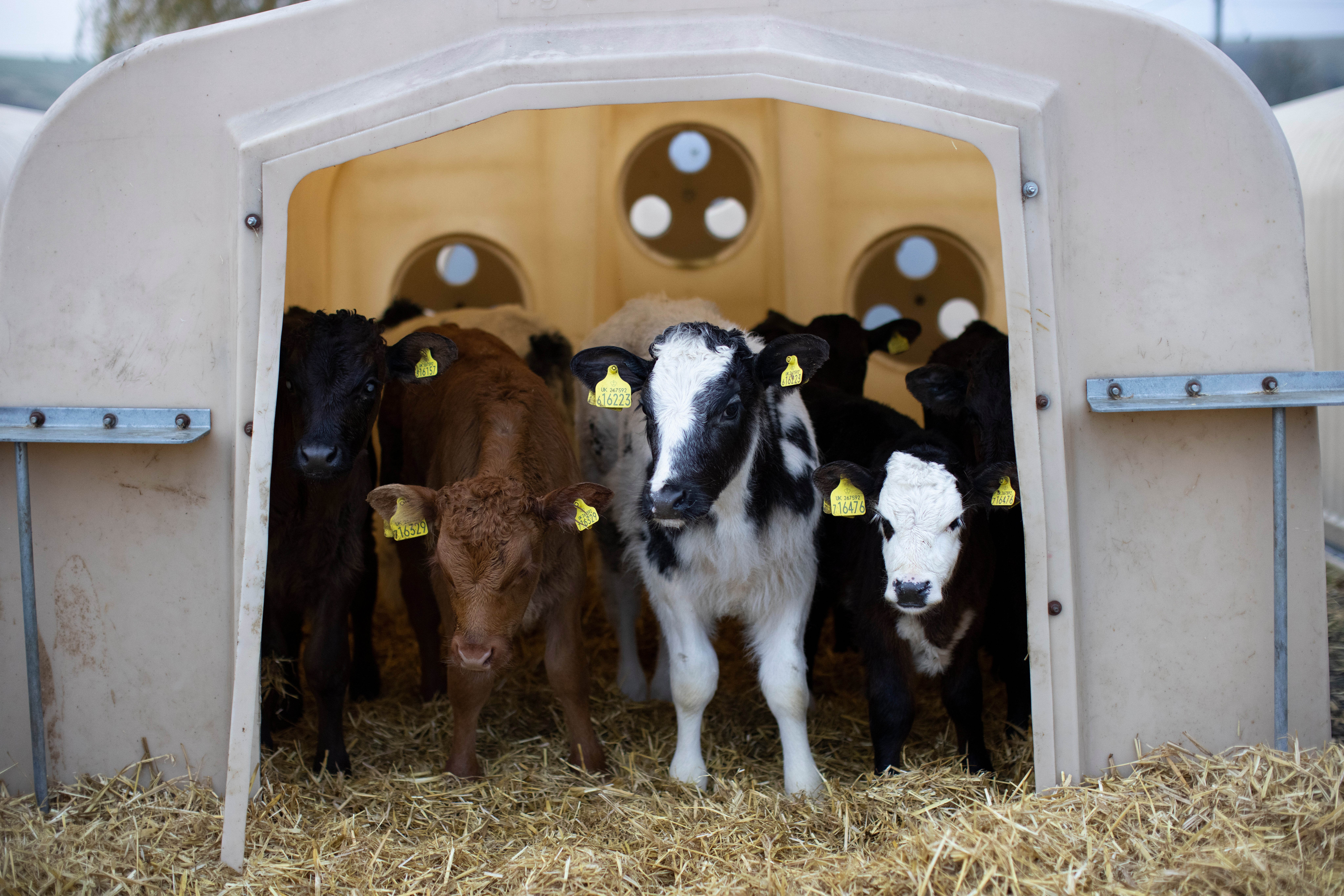Gene-editing plan ‘dark day’ for animal welfare and environment, say farming experts
Technique ‘would cause animals real suffering and fails to tackle greenhouse food waste gas emissions’

Your support helps us to tell the story
From reproductive rights to climate change to Big Tech, The Independent is on the ground when the story is developing. Whether it's investigating the financials of Elon Musk's pro-Trump PAC or producing our latest documentary, 'The A Word', which shines a light on the American women fighting for reproductive rights, we know how important it is to parse out the facts from the messaging.
At such a critical moment in US history, we need reporters on the ground. Your donation allows us to keep sending journalists to speak to both sides of the story.
The Independent is trusted by Americans across the entire political spectrum. And unlike many other quality news outlets, we choose not to lock Americans out of our reporting and analysis with paywalls. We believe quality journalism should be available to everyone, paid for by those who can afford it.
Your support makes all the difference.Gene-editing will be bad for animal welfare and bad for efforts to curb greenhouse gases, organic farmers and environmental experts claim.
Allowing the genes in crops and farm animals to be altered would lead to greater farm animal suffering and would not address food waste, they argue.
Ministers have announced they will consider the use of the cutting-edge biotechnology in England for the first time, saying crops and livestock could be made to be more productive, so reducing costs to farmers and effects on the environment.
Launching a consultation on the move, George Eustice, the secretary of state for environment, food and rural affairs (Defra), said gene-editing (GE) would speed up the slow process of selective breeding to enhance or remove particular traits.
But Peter Stevenson, chief policy adviser at the group Compassion in World Farming, said it was a “dark day for animal welfare” and that he was very disturbed by Defra’s proposal – which demonstrated “disjointed government thinking”.
Gene-editing would both drive faster growth rates of animals, “causing real suffering” and would entrench factory farming, with its conditions that allow diseases to spread, he told The Independent.
“Traditional selective breeding has already pushed animals to fast growth and high yields, often with immense detrimental impacts on welfare. Meat chickens have been bred to grow so quickly that many suffer from painful leg disorders, while others succumb to heart disease.
“Selection of dairy cows for unnaturally high milk yields has led to much suffering. Gene-editing is poised to make this all much worse.
Mr Stevenson, a member of the Nuffield Council on Bioethics working party, added: “The government argues that gene-editing can be used to tackle disease in farm animals. This sounds good but could enable animals to be kept in even worse conditions than now.”
Much disease in farm animals stems from stressful, overcrowded conditions that undermine their immune systems, he said, so the answer was better farming methods.
He said that although gene-editing could be useful in a few exceptional circumstances, “it’s ridiculous that the government is encouraging its use to increase meat production at the very time when scientists are saying we need to reduce meat consumption to tackle climate change and reduce heart disease and bowel cancer”.
And Steven Jacobs, of the Organic Farmers and Growers company (OF&G), said the technique failed to address food waste, which is one of the biggest emitters of damaging greenhouse gases, and nor does it tackle obesity by encouraging healthier diets.
“Food seen simply as a commodity is how we got into a negative situation in our food systems, economically and ecologically,” he said.
“Poor diet is result of dietary choice, heavily influenced by promotion of products designed to appeal to human hunger for fast energy.”
Roger Kerr, chief executive at the OF&G, said that gene-editing - which means permanently altering DNA in cells - opened up the farmed environment to “potentially harmful, unintended consequences”, and he called for a fully researched assessment of the long-term implications.
Mr Eustice said it could help deliver crops that “perform better, reducing costs to farmers and impacts on the environment, and helping us all adapt to the challenges of climate change”.
Mr Kerr said: “There’s an acute lack of peer-reviewed, independent research to back up the minister’s claims. Science has shown the climate and ecological crisis is having serious, negative effects on our food production systems. GE isn’t a responsible, proven solution.
“More government funding for research into organic, whole food system methodologies should be considered before embracing unproven technologies.”
Patrick Holden, of the Sustainable Food Trust, said GE would “further accelerate the devastating narrowing of the gene pool which has been a feature of postwar farming”.
He added: “On the animal front, we can expect livestock to be bred to live even shorter lives, with all the horrific attendant animal-welfare consequences, erroneously justified on the grounds of reduced greenhouse gas emissions and leaner meat, because that is the fashion.”
The Independent has asked Defra to respond.





Join our commenting forum
Join thought-provoking conversations, follow other Independent readers and see their replies
Comments